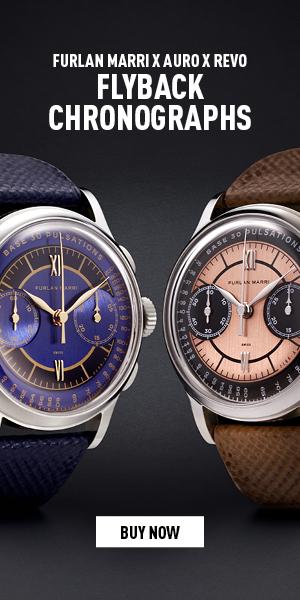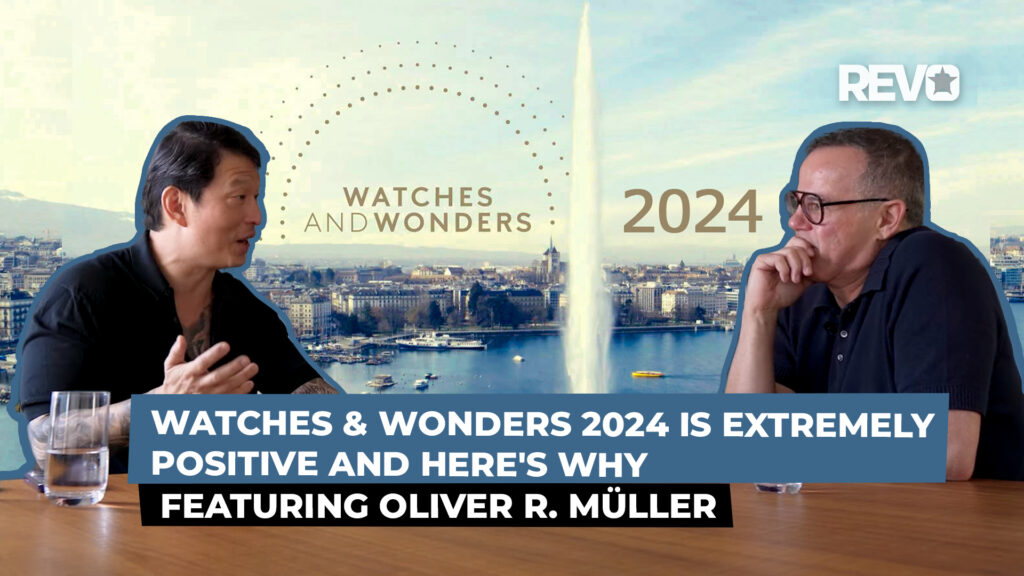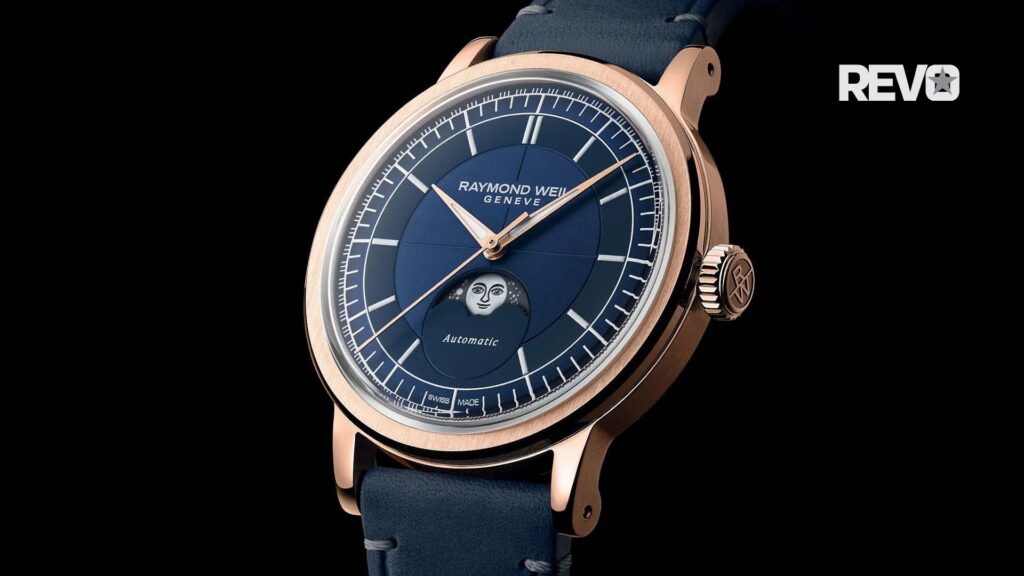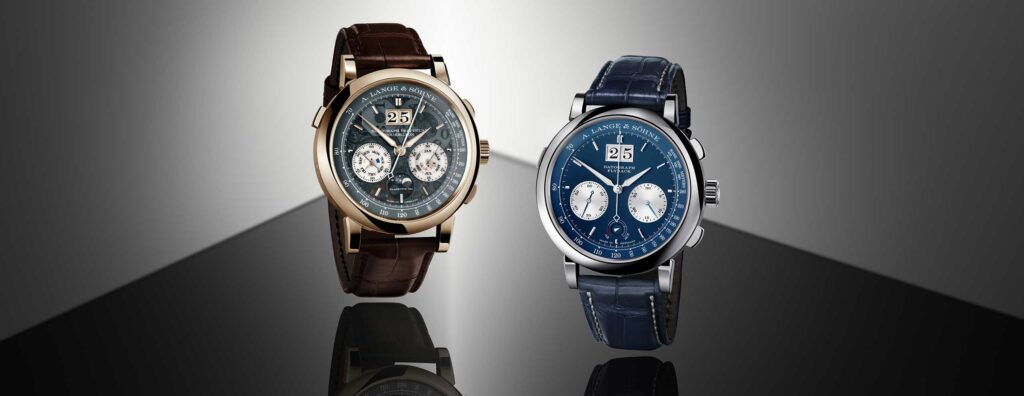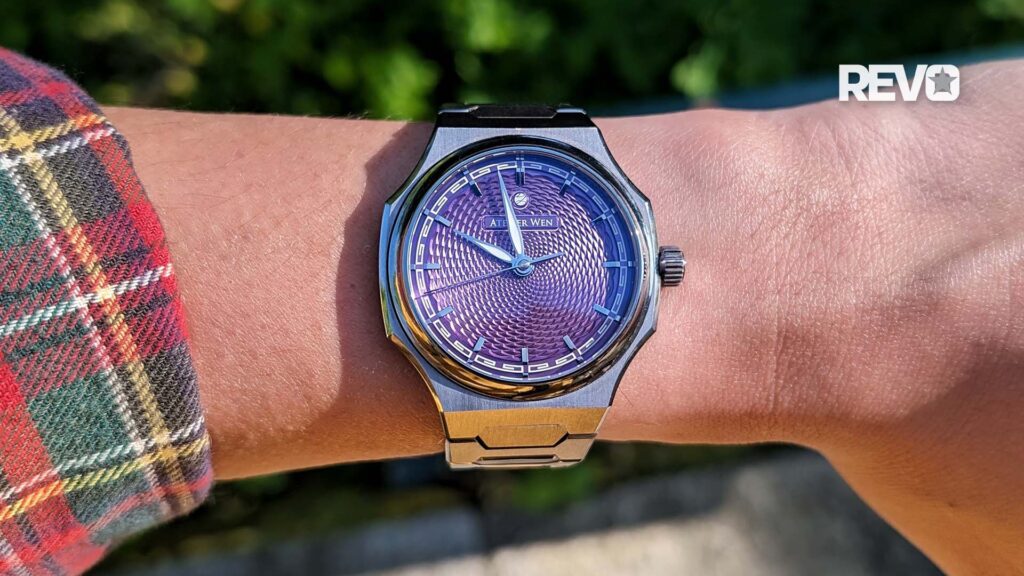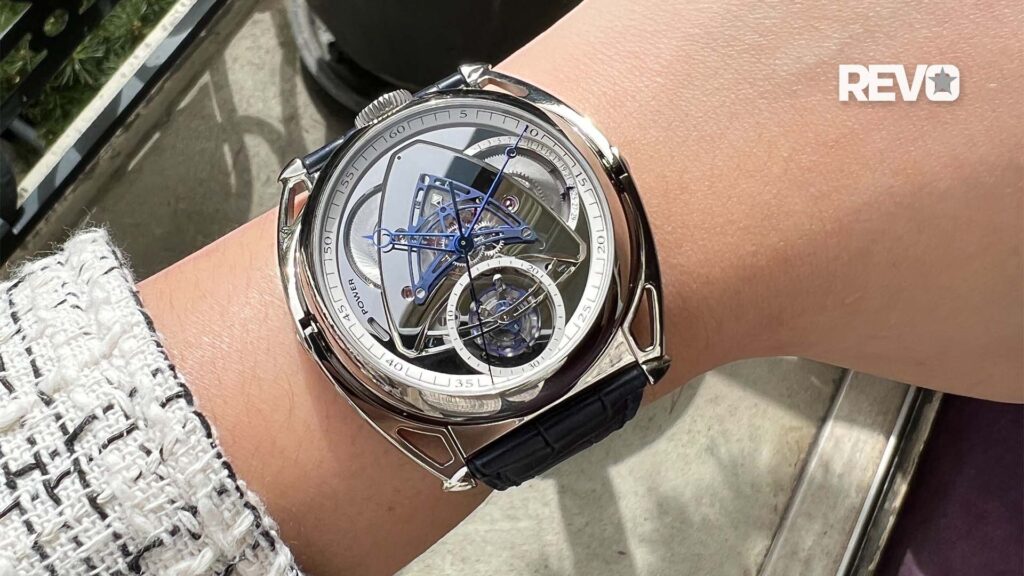Interviews
Cool Britannia: Scurfa
“Scurfa is pretty much an amalgam of my professional diving career and my watch collecting background; the two go hand in hand!”
– Paul Scurfield, Founder of Scurfa
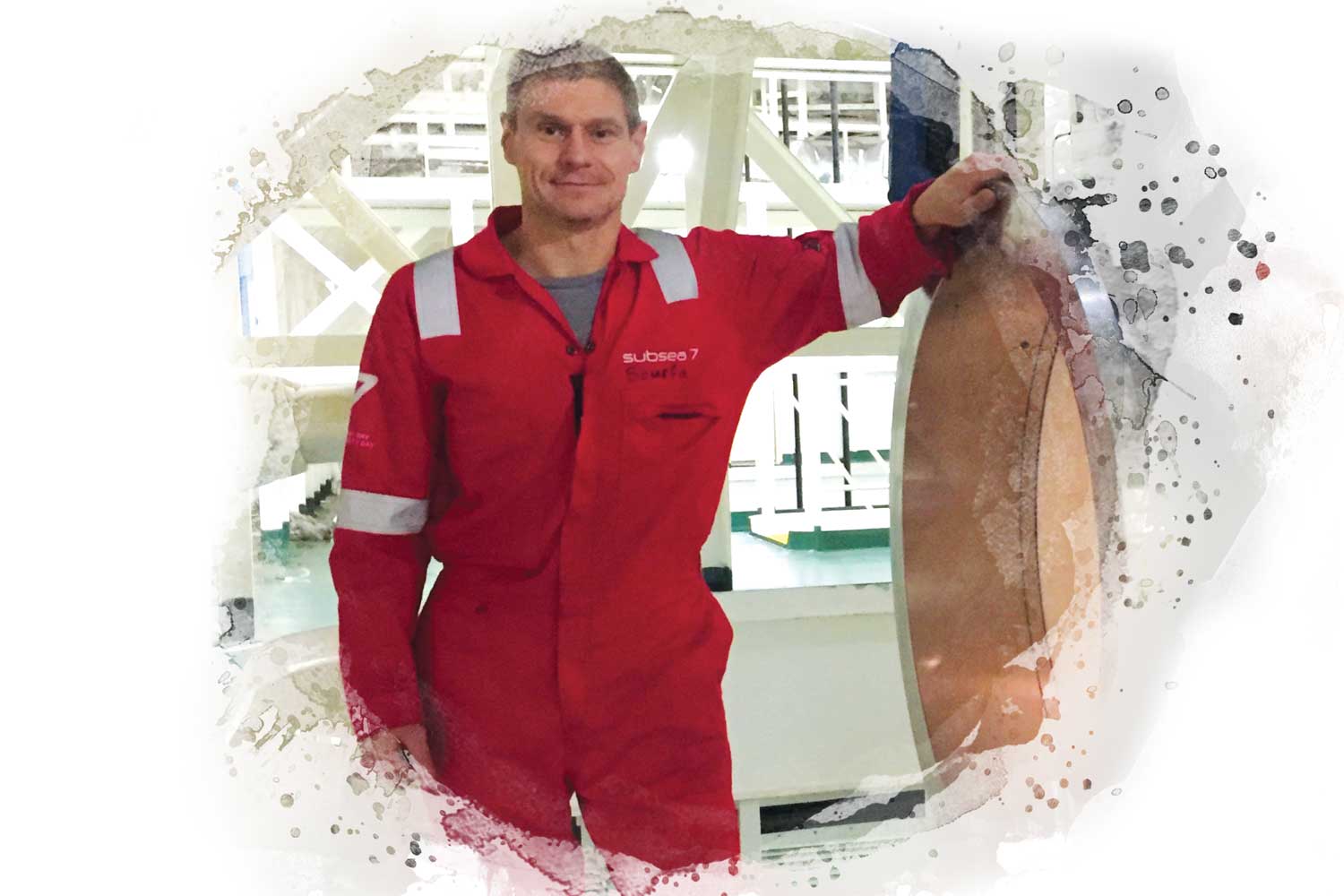
Paul Scurfield, Founder of Scurfa
What started your interest in watches?
It has to be James Bond and that Rolex (the 6538 “Big Crown” Submariner that Bond wore in Dr. No) that led to my love of diving and diving watches. I grew up in the northeast of England, in the seaside town of South Shields, and I had contact with lots of divers. It was common knowledge that the Comex diving vessels used the local port for maintenance and repairs. The local secondhand shops were full of “Comex” Rolex watches, and I used to look at them in the windows as a lad.
Loving dive watches and then setting up a dive watch brand is a big leap, though!
It was pretty much an accident, to be honest. Lots of professional divers have old Rolex watches and as the value increased, they stopped using them at work or sold them. So, we were looking for an affordable but reliable alternative. The offshore diving supply company Divex offered a good little quartz model but they became hard to find. So, out of necessity, I started looking into making some dive watches myself.
How did you begin this process?
It was hard looking for a partner who would make watches based on my designs in [the] small numbers that I was looking to make them in. After a lot of searching and a few wrong turns, I managed to make three models in quartz. I believe a diving watch for working divers should be quartz, as if you hit an automatic watch hard enough, it can stop. At first, all the watches I made were sold to workmates and friends of friends. At the end of 2012, I had a long spell off work due to a ship’s refit, and I thought I would try and sell some of the watches online. By 2013, the micro-brand watch market was emerging, and we had a good response on the dive watch forums. We have made a lot of friends over the past nine years, and I always consult with some members, a mix of professional divers and dive watch collectors on future designs, and receive a lot of positive input.
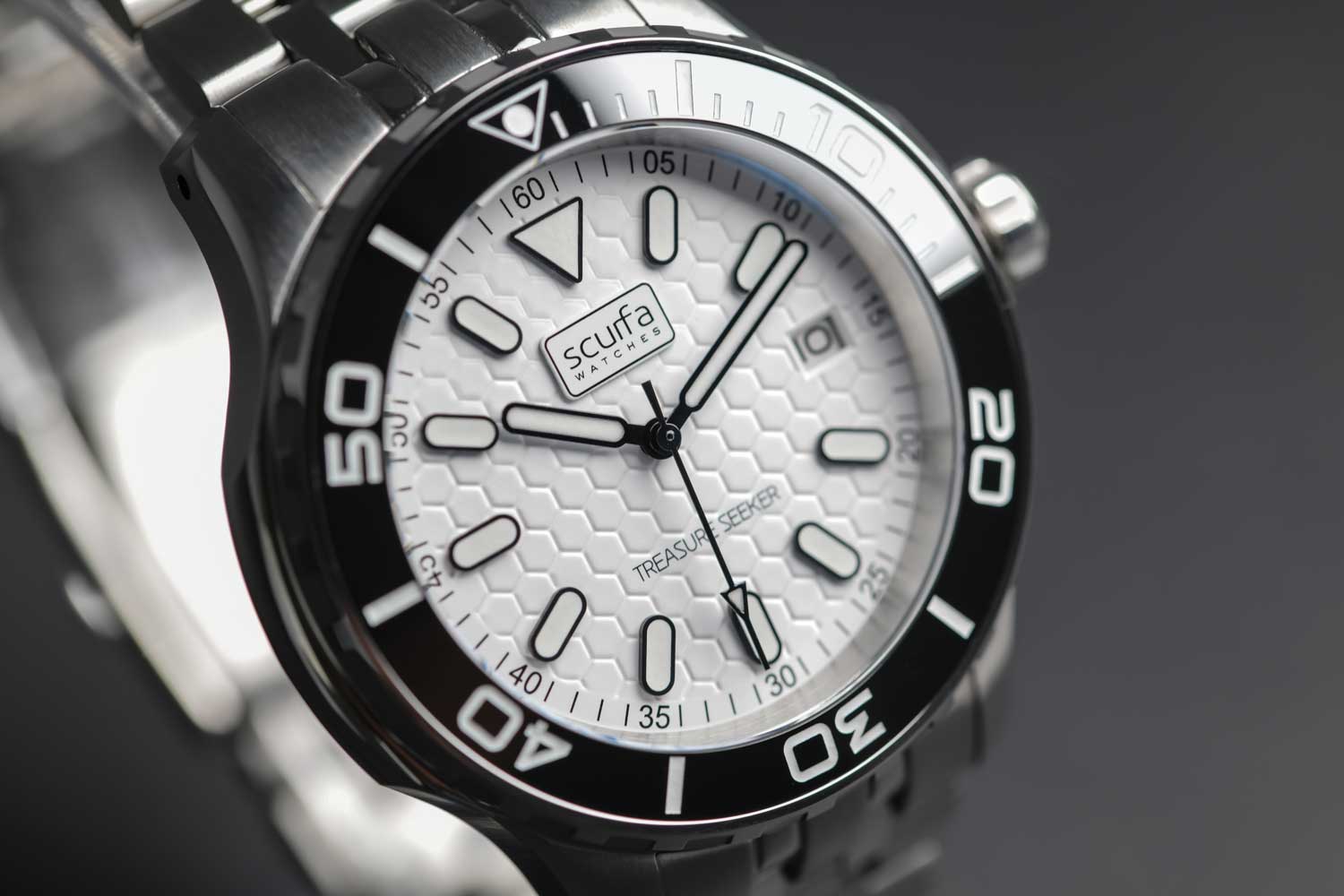
Scurfa Treasure Seeker
Did being a professional diver and dive watch collector help your understanding of what the watches technically needed to be?
Yes, I think so. I was always very specific with what I wanted. Being a commercial diver and knowing many others were very important because I was essentially designing watches that me and my colleagues needed. My days stripping Rolex and Tudor watches for parts and restoration was a great help from a technical point too, as I knew what worked well! My watchmaker was also a huge help on many occasions.
Has it been a steep learning curve though?
Oh yes! In manufacturing, never assume the person you are dealing with knows what they are doing. I had a lot of problems in the early days with quality control. I was lucky I had tools and experience stripping and rebuilding watches; if not, I could never have continued with Scurfa Watches.
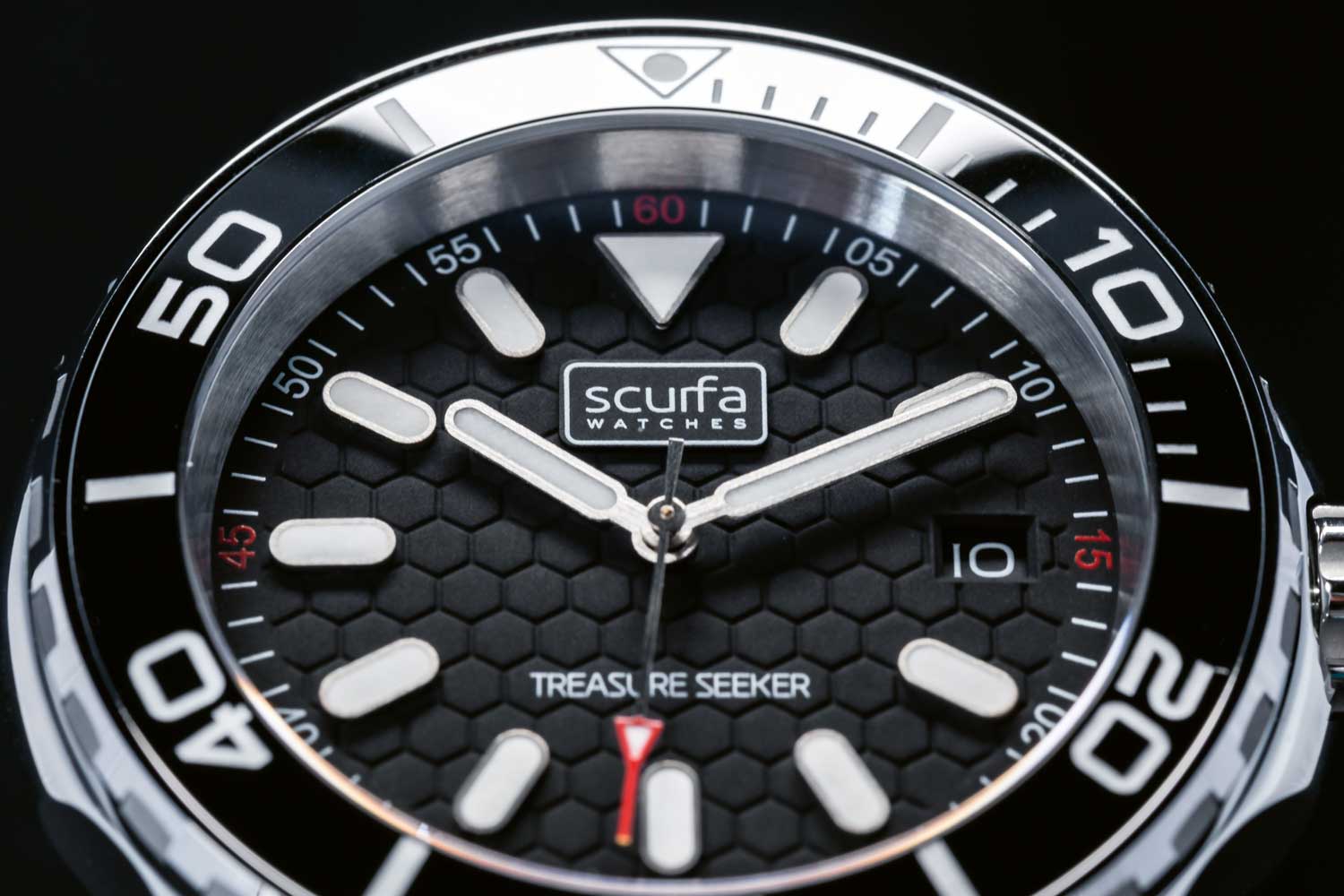
Is there a watch that you are particularly proud of?
It would be the MS (Military Spec) Diver One model that we produce annually. The model follows the UK Defense Standard 66-4 for a Royal Navy Divers watch. I make 100 each year and number the casebacks, like the Tudor Marine Nationale watches. For the last few years, the entire batch has sold out in less than a minute! I am also delighted with our latest model, the Treasure Seeker, which took 20 months to develop and get right. It has caseback artwork by an ex-Comex diver, and a dial made up of hexagons representing the nuts we use for bolting up flanges sub-sea.
Do you draw inspiration from non-watch related brands or businesses?
Yes, that’s really important to me. I always look at different sectors and other independent brand owners who have started from the bottom up. One area I’m interested in is fashion designers such as Philipp Plein and Elisabetta Franchi. These two are my current favorites, and it’s incredible to see what they are achieving.
As somebody who’s been into vintage watch collecting for years, what do you make of the current market?
The watch market at the minute is bonkers and has moved so fast in only the last few months. I don’t see it slowing down and could see it coming a good few years ago when we were discussing the market on the VRF (Vintage Rolex Forum). I consider fine watches the same as fine art, and if you think [of] an average painting by an artist who may not even be a household name selling for around six hundred thousand pounds, [compared] to a famous artist who could sell for one hundred million pounds, it’s not beyond the realms of possibility for watches to follow this trend.
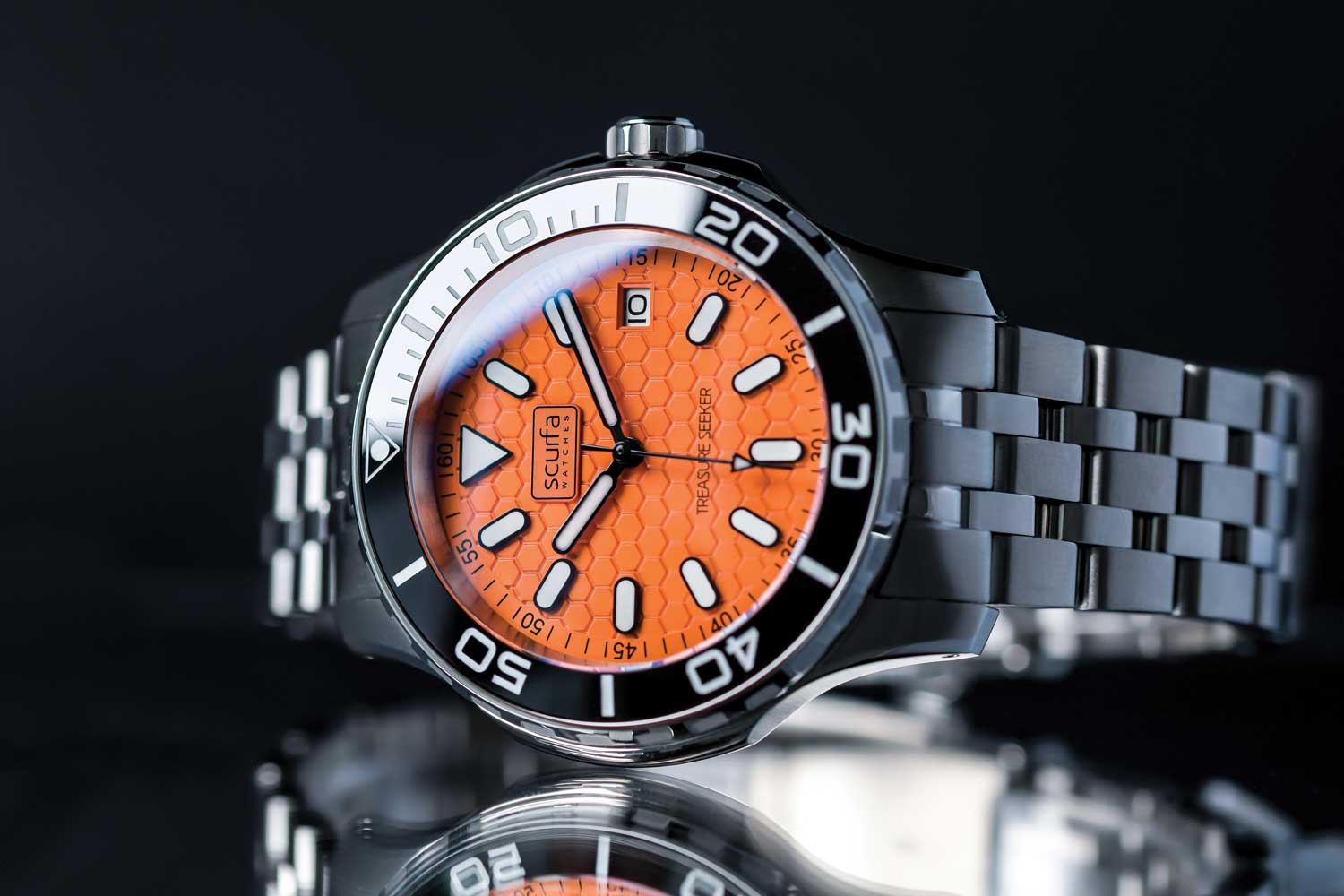
Scurfa Treasure Seeker
Are British watch brands important on the global stage?
Definitely, we have some fantastic independent watchmakers and watch brands in the UK. The global reach and contact we have through the Internet, however, makes commissions and purchases available to anyone worldwide.




